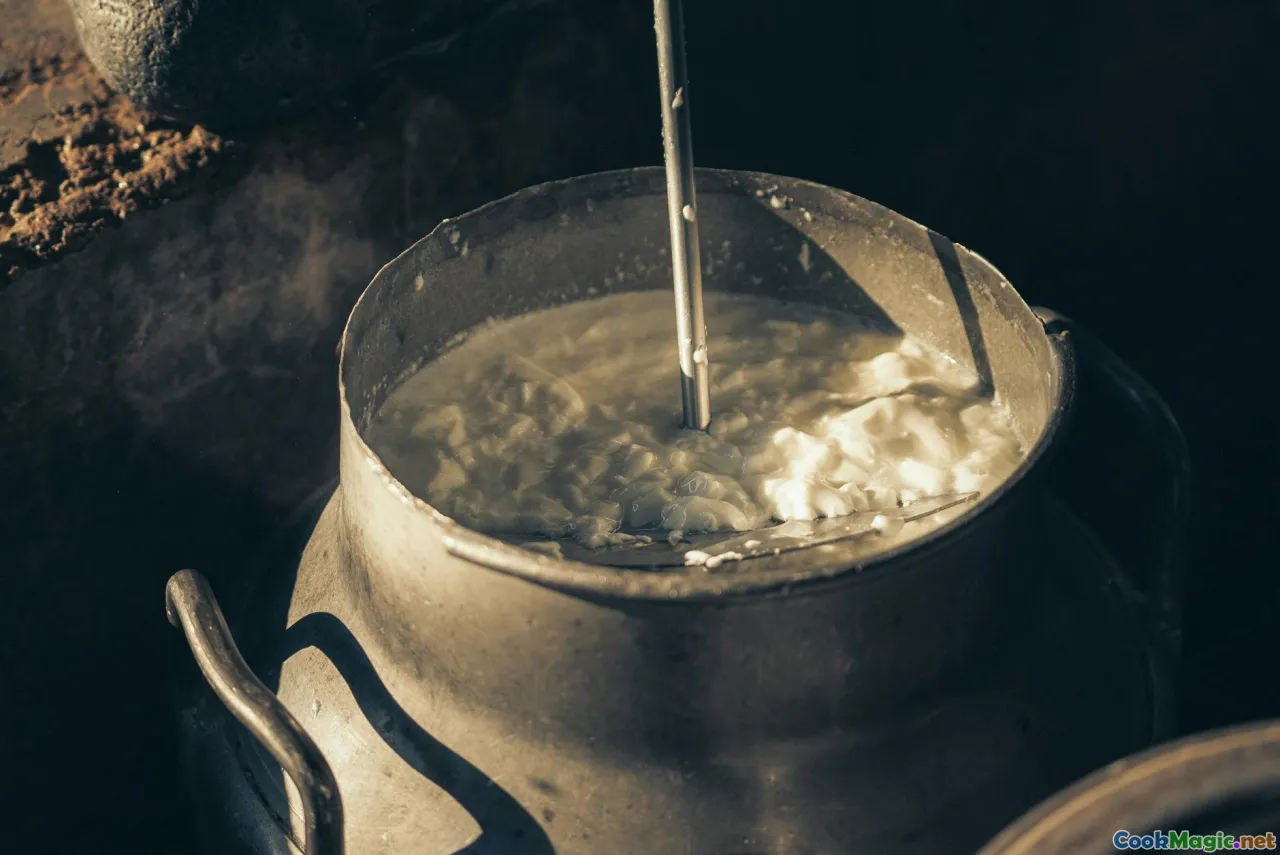Role of Dairy in Everyday Kosovar Meals
7 min read Discover how dairy shapes daily Kosovar meals, blending tradition, flavor, and culture in a rich culinary tapestry. April 23, 2025 00:55
Role of Dairy in Everyday Kosovar Meals
Imagine waking up in the heart of the Balkans, the aroma of freshly baked bread mingling with the tangy scent of yogurt, as the sun casts a golden hue over rugged mountain landscapes. In Kosovo, dairy is not just an ingredient—it’s a cornerstone of life, culture, and community. From the earliest days of pastoral life to modern tables, dairy products have played an integral role in shaping the flavors, traditions, and social fabric of Kosovar cuisine.
An Age-Old Tradition Rooted in the Land
Kosovo’s mountainous terrain, lush pastures, and pastoral traditions have fostered a deep relationship with dairy farming. For generations, local families have raised sheep, goats, and cows, not merely for sustenance but as custodians of a rich culinary heritage. The cool, mineral-rich mountain air, combined with traditional practices, produces dairy that is both wholesome and imbued with cultural significance.
The Heart of Dairy: Milk
At the core of Kosovar dairy is fresh, unprocessed milk—straight from the animal to the table. Early mornings often start with milking sheep and goats, whose milk is revered for its unique flavor and high nutritional value. The milk is then transformed into a variety of cherished products, each with its own story and significance.
Key Dairy Products and Their Cultural Significance
1. Kashkaval: The Cheese of Kosovo
Kashkaval, a semi-hard yellow cheese, is a staple in Kosovar households. Traditionally crafted from sheep’s or goat’s milk, its firm texture and slightly nutty flavor make it perfect for grating over salads, filling pastries, or enjoying on its own. The process of aging the cheese—often in cool cellars—connects generations and preserves ancient techniques.
2. Yogurt and Ayran: The Daily Refreshment
Yogurt is more than a breakfast item; it’s a daily ritual. Thick, creamy, and tangy, Kosovar yogurt accompanies bread, serves as a dip, or becomes the base for traditional drinks like ayran—a salty yogurt beverage served chilled, perfect for hot summer days. The fermentation process not only enhances flavor but also promotes gut health, making it a staple in health-conscious households.
3. Kaşar and Feta: Versatile and Vital
Kosovar cuisine features various forms of aged cheese—kaşar and feta being prominent. These cheeses, often made from sheep’s milk, are crumbled over dishes, stuffed into pastries, or enjoyed with fresh bread and olives. Their salty, tangy taste elevates simple meals into hearty, satisfying feasts.
4. Skuta and Ricotta: Fresh and Creamy
Soft, white, and with a delicate tang, skuta (a fresh cheese similar to ricotta) is used in both savory and sweet dishes. It’s often whipped with herbs for spreads or incorporated into pastries like burekandpite.
Traditional Culinary Uses of Dairy
Burek and Pastries
Dairy plays a pivotal role in the making of burek, a flaky pastry filled with cheese, spinach, or meat. The cheese filling, often a mixture of yogurt, feta, and eggs, adds richness and moisture, creating a melt-in-the-mouth experience.
Soups and Stews
In hearty stews like tavë kosi—a baked dish of lamb, rice, and yogurt—the dairy component, especially the yogurt, is essential. It tenderizes the meat and provides a creamy, tangy contrast that balances the richness.
Breakfast Classics
A typical Kosovar breakfast might include fresh bread spread with butter and cheese, accompanied by a glass of yogurt or ayran. This simple yet nourishing meal connects families and communities, often enjoyed in the company of loved ones.
Fermentation and Preservation: Dairy’s Cultural Artistry
Fermentation is a time-honored technique in Kosovar dairy culture. Yogurt, ayran, and even certain cheeses are fermented to develop complex flavors and extend shelf life. These processes are often passed down through generations, with families guarding their secret recipes.
Personal Reflections and Anecdotes
Having traveled through Kosovo’s mountain villages, I was struck by the reverence for dairy. In a small village near Prishtina, I witnessed an elderly woman meticulously making yogurt in a clay vessel, singing softly as she stirred the milk. The aroma of fresh cheese aging in cool cellars was intoxicating, a testament to a culture that values tradition and craftsmanship.
The communal aspect of dairy production is also striking. During festivals, families share homemade cheeses and yogurt, exchanging stories and recipes. These gatherings reinforce bonds and celebrate the land’s bounty.
The Emotional and Social Fabric
For Kosovars, dairy is more than sustenance—it’s an expression of identity and heritage. It embodies resilience, tradition, and community spirit. The simple act of sharing a piece of cheese or a glass of yogurt can evoke memories, foster connections, and preserve a way of life.
Conclusion: A Delicious Legacy
Dairy’s role in Kosovar cuisine is a testament to the land’s generous gifts and the people’s ingenuity. It weaves together history, culture, and daily life—transforming humble ingredients into symbols of pride and continuity. As you explore Kosovar dishes, remember that each bite carries centuries of tradition, crafted with love and respect for the land.
Whether enjoyed in a rustic mountain home or a bustling city café, dairy remains a vital thread in the vibrant tapestry of Kosovo’s culinary heritage. Embrace it, savor it, and let the flavors tell their stories.









